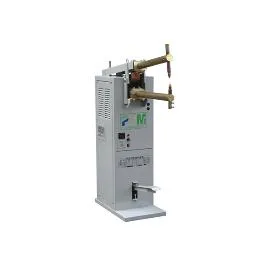Nov . 21, 2024 14:21 Retounen nan lis la
Choosing the Right Truck Air Filter
Truck air filters are essential for keeping engines clean and running smoothly, protecting the vehicle from dust, debris, and contaminants that could impair performance. Whether you're a fleet manager, a truck owner, or someone in the manufacturing business, understanding the different types of truck air filters, the truck air filter price range, and insights into truck air filters making machines can help you make informed decisions.

Why Truck Air Filters Matter
Truck air filters play a crucial role in safeguarding the engine. As trucks encounter varying road conditions, the air filter traps dust, pollen, dirt, and other particles from entering the engine. This ensures that the engine operates efficiently, leading to better fuel economy, reduced emissions, and prolonged engine life.
Types of Truck Air Filters
Paper Air Filters
- Materyèl: Made of pleated paper, these are designed to trap fine particles.
- Pros: Affordable, easy to replace, and efficient in trapping debris.
- Cons: Not reusable, so they require frequent replacement, especially in high-dust environments.
- Ideal For: Light-duty trucks or trucks used in relatively clean environments.
Foam Air Filters
- Materyèl: Made of a foam material that can trap larger particles.
- Pros: Washable and reusable, which reduces long-term replacement costs.
- Cons: May require oiling to function effectively, making them slightly more maintenance-intensive.
- Ideal For: Trucks that operate in off-road or extremely dusty conditions.
Cotton Gauze Air Filters
- Materyèl: Typically, oiled cotton gauze is used, allowing for excellent airflow.
- Pros: Reusable and washable, offering a balance between performance and longevity.
- Cons: Generally more expensive and needs regular maintenance to stay effective.
- Ideal For: High-performance trucks where both power and efficiency are priorities.
Synthetic Air Filters
- Materyèl: Synthetic fibers that capture particles without the need for oil.
- Pros: High filtration efficiency, easy maintenance, and longevity.
- Cons: Often come at a higher price point.
- Ideal For: Long-haul trucks where frequent filter replacement is impractical.
Truck Air Filter Price: What to Expect
The cost of a truck air filter can vary significantly based on material, brand, and type.
- Paper Filters: Generally cost-effective, priced between $10-$30 per unit. Ideal for quick replacements.
- Foam Filters: Priced between $20-$50, foam filters are reusable, making them more cost-effective over time.
- Cotton Gauze Filters: These premium filters range from $40-$80 and offer excellent filtration and airflow.
- Synthetic Filters: With prices ranging from $50-$100, synthetic options are designed for durability and high performance.
Choosing a filter that balances cost with the required durability for the truck’s operating environment can help optimize both expenses and vehicle performance.
Understanding Truck Air Filters Making Machines
For businesses in the manufacturing sector, investing in a truck air filters making machine can be a strategic choice. These machines automate the production of truck air filters, allowing for scalable production to meet market demands.
Types of Truck Air Filters Making Machines
- Paper Pleating Machines: Used to create the pleated structure in paper filters, crucial for trapping particles effectively.
- Foam Cutting and Shaping Machines: Designed specifically for cutting foam into the shape needed for foam air filters.
- Synthetic and Cotton Gauze Filter Machines: These machines handle synthetic materials, shaping and layering them for optimized filtration.
Features of Advanced Air Filter Making Machines
- Automation: Machines today are highly automated, reducing labor costs and enhancing production speed.
- Adjustability: Modern machines offer adjustable settings to create filters of various sizes and thicknesses.
- High Precision: Automated machines ensure consistency and quality, which is vital for performance and regulatory compliance.
Investment Cost and ROI
- Cost: Depending on the level of automation and type, machines can range from $20,000 to over $100,000.
- ROI: For companies with high production demands, the investment can quickly pay off, particularly in regions with high demand for truck filters. Many manufacturers report ROI within 1-2 years due to the reduction in manual labor and increased production capacity.
Maintenance Tips for Truck Air Filters
Regularly maintaining truck air filters ensures optimal performance and prolongs the lifespan of both the filter and the engine.
- Inspection: Check air filters every 10,000 to 15,000 miles, or more frequently in dusty environments.
- Replacement: Replace paper filters as per the manufacturer’s recommendations; clean reusable filters according to usage.
- Avoid Over-oiling: For cotton gauze and foam filters, avoid excess oiling as it can restrict airflow and affect engine performance.
Choosing a Truck Air Filter Supplier
When sourcing truck air filters, consider the following:
- Quality Certifications: Ensure the supplier adheres to ISO or similar quality standards.
- Material Options: Look for suppliers offering a range of materials like synthetic, cotton, and paper to cater to different truck applications.
- Pricing: A reliable supplier should offer competitive pricing, especially for bulk purchases.
- After-Sales Support: For manufacturers using truck air filter machines, suppliers who offer after-sales support, training, and machine maintenance are invaluable.
Selecting the right truck air filter type, understanding truck air filter price options, and knowing the benefits of truck air filters making machines are essential for efficient and cost-effective truck maintenance and manufacturing. By balancing price with the durability and performance needs of the truck, operators and manufacturers alike can achieve optimal results and longevity from their engines and products.
-
Spin-On Oil Filter Production Line: The Ultimate Guide for Wholesalers
NouvèlJul.25,2025
-
Cabin Air Filter Production Line: The Complete Manufacturing Solution for Global Distributors
NouvèlJul.25,2025
-
Optimizing Truck Air Filters Machine Production Line for Cost-Efficiency and Sustainability
NouvèlJul.18,2025
-
Modular Eco Oil Filter Production Line Solutions for Scalable and Flexible Output
NouvèlJul.18,2025
-
Innovations in Cabin Air Filter Machine Design for Sustainable Material Processing
NouvèlJul.18,2025
-
Energy-Saving Innovations in Spin-On Oil Filter Machine Design for Sustainable Manufacturing
NouvèlJul.18,2025
